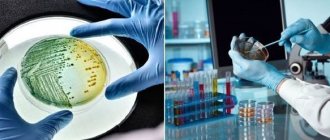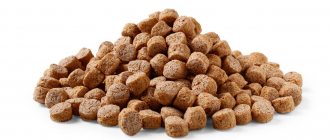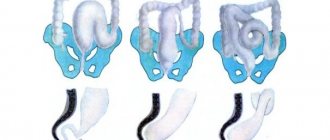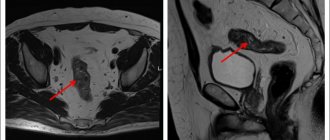probiotics
prebiotics
metaprebiotics
As interest in natural treatments grows, so does the popularity of probiotics. In 2012, nearly 4 million American adults took probiotics or prebiotics, a fourfold increase from 2007. Probiotics were used in more than 50,000 hospitalizations at 139 U.S. hospitals in 2012. Last year alone, American consumers spent, an estimated $2.4 billion in nutritional supplements .
However, two studies have recently been published in which scientists from Israel question whether such widespread use of probiotics to improve overall well-being and restore intestinal microflora after antibiotic use is really advisable .
The first study showed that bacteria from probiotic microorganisms contained in a dietary supplement are not able to colonize the proper parts of the intestine , and, presumably, they can bypass the gastrointestinal tract without any effect on it. In another study, the same bacteria settled in the intestines after a course of antibiotics, but there was a delay in the restoration of its own microbiota . Both studies, conducted on healthy volunteers, were published in the journal Cell in October 2021.
The term "probiotics" means "live microorganisms that, when administered in an adequate dose, contribute to a health benefit to the host." However, some experts say any evidence of benefit, limited to a small number of indications, is controversial and often of poor quality. A 2021 Cochrane analysis found that data from 10 of 14 systematic reviews of clinical trials were insufficient to determine whether probiotics improve gastrointestinal health .
It would seem that things should be better in patients with diarrhea. Although many studies suggest that probiotic supplementation may prevent or treat antibiotic-associated diarrhea and Clostridium difficile infection, other studies (both children and adults) have shown no benefit for these conditions. The two most recent studies, published late last year in the New England Journal of Medicine, did not show the effectiveness of Lactobacillus rhamnosus probiotics in children with gastroenteritis or stomach flu.
Among scientists and practitioners using bacterial therapies, such uncertainty has "caused a great deal of confusion," says Eran Elinav, MD, PhD, a professor at the Wetzmann Institute in Rehovot, Israel, and lead author of the new study published in Cell. .
What are probiotics
Probiotics, or eubiotics in other words, are beneficial live bacteria that, in the normal state of the intestines, create a healthy microflora. That is, these are substances necessary for the body that can suppress the negative effects of pathogenic and opportunistic microbes.
Such microorganisms have many beneficial properties:
- Responsible for the synthesis of biotin, folic acid and vitamin K.
- Promote the regeneration of the mucous membranes of the body and restore the microflora.
- Prevent exposure to pathogenic and toxic substances.
- Increase protective functions.
Changes in the composition and quantity of intestinal bacteria provoke disorders, causing dysbiosis and other diseases in children and adults.
Diet for microflora disorders
To treat a mild form of dysbiosis, a special diet may be sufficient. The diet should contain a sufficient amount of proteins, fats, and carbohydrates. It is recommended to drink a glass of warm water half an hour before. It is important that your diet includes the following substances:
- Lacto- and bifidobacteria. They are found in fermented milk products, butter;
- Fiber is found in vegetables and fruits;
- Amino acids glutamine and arginine, the sources of which are chicken, beef, nuts, fish, dairy products, peas.
It is necessary to avoid fatty, fried, smoked, spicy foods.
Classification of probiotics
There is a whole classification of drugs that improve intestinal microflora:
- First generation - only one type of microorganism is present. Representatives are Bifidumbacterin, Dactobacterin, Colibacterin and others.
- Second generation - such probiotics contain yeast fungi and bacilli, which, upon penetration into the body, have a therapeutic effect and help normalize normal intestinal flora. Effective representatives of the second row: Biosporin, Bactistatin, Sporobacterin.
- The third generation consists of drugs that contain a whole range of beneficial strains of bacteria and various additives. These drugs include: Acipol, Bifiliz, Linex, Lebenin.
- The fourth generation is a probiotic medicine based on bifidumbacteria with a pronounced sorbing effect. Representatives are: Probifor, Bifidumbacterin Forte, Florin Forte.
There are currently a lot of probiotic manufacturers. However, it is recommended to choose products that are manufactured by domestic pharmaceutical companies, since such preparations contain beneficial bacteria that are adapted to the climate in Russia. While foreign drugs often have low therapeutic properties.
Also, before you start taking probiotics, you should familiarize yourself with the procedure for taking them. All features are described in the instructions or you can consult a doctor. It is impossible to take drugs uncontrollably, as they can cause severe pathological disorders. Improper use of probiotics can cause weight gain, an allergic reaction, an imbalance of cytokines in the body, and the formation of stones in the urinary and gall bladder.
After antibiotics
In their second study, the researchers looked at what happens in the gut when a person takes probiotics after a course of antibiotics. Twenty-one healthy volunteers were treated with broad-spectrum antibiotics (ciprofloxacin and metronidazole) for one week. They then either took the same supplement as in the first study twice daily for 4 weeks, an autologous fecal microbiota graft representing a sample of the subjects' own pre-antibiotic microbiota taken via upper gastrointestinal endoscopy, or nothing. and constituted the control group.
This time, none of the subjects taking probiotics were resistant to colonization. Antibiotics killed most of the natural microbiome, allowing exogenous strains to spread. However, this came at a cost: natural gut bacteria were restored over a longer period in the probiotic group compared to the control group. The return to baseline of host intestinal cell gene expression was also suppressed in the probiotic group during the six-month follow-up period.
Alexander Khoruts, a gastroenterologist and director of the gut microbiota medical program at the University of Minnesota, who was not involved in the study, said he was surprised that the probiotics showed any significant effect at all, even such a small one. It.
Khoruts primarily treats patients with difficult-to-treat C. difficile infections, and nearly all of his patients say they took probiotics. While he's not arguing with them, other than encouraging them to eat more fermentable foods, Khoruts says the evidence supporting the benefits of probiotics is weaker than many people think. “In my literature review (although many may disagree), I did not find any convincing evidence , at least for C. difficile infection, of any beneficial effect of taking probiotics ,” the doctor states.
One significant limitation is the apparent lack of randomized trials providing data on the safety of probiotics, a topic addressed by a systematic review presented in the Annals of Internal Medicine.
Despite the results of the Weizmann Institute of Science study, it is still unknown whether taking probiotics during or after a course of antibiotics actually slows down the restoration of the natural microbiome, and whether such disturbances can cause problems. The composition of the probiotics varies and, according to Knight, the researchers administered an extremely high dose. In addition, the study design did not include analysis of clinical outcomes.
However, long-term impairment after a course of antibiotics is associated with a number of health problems, including infections, obesity, allergies and chronic inflammation, says Elinav. In his opinion, long-term impairment caused by the probiotics his team was studying " could potentially lead to long-term side effects in individuals consuming them ."
Knight notes that the study was conducted on healthy volunteers who were administered antibiotics for research purposes only. In reality, people take antibiotics when they suffer from some disease. Will probiotics slow down the restoration of natural intestinal microflora in this case?
“This study does not address this issue at all,” Knight says. “It discusses the administration of antibiotics to healthy subjects, whose situation may be quite different from the clinical patient population.”
Khoruts believes that the harm from taking most probiotics is likely to be minimal. However, for him “this is quite enough to stop prescribing them and think about what to believe. "I believe the prescribing physician should have a healthy degree of skepticism regarding claims made regarding such products."
Probiotics for the intestines: list of drugs
The most effective probiotic preparations for normalizing microflora and combating pathological conditions of the intestine are:
- Bifidumbacterin is available in many dosage forms: tablets, suppositories, powder, capsules, ampoules, dry and liquid mixture. The composition contains bifidobacteria in various doses. A product is used to suppress the activity of pathogenic and opportunistic microbes. Prescribed for adults and children over 3 years of age.
- Linex - presented in the form of capsules for oral administration. The active components of the probiotic are bifidumbacteria, enterococci and lactobacilli. They promote the formation of healthy flora, provoke the production of essential vitamins, cause an acidic environment and improve the functioning of digestive enzymes.
- Biosporin is a second generation drug. Contains a large number of living bacteria - up to 2 billion. Available in the form of tablets and powder for further preparation of the solution. It has a broad therapeutic effect and can be used for the treatment and prevention of intestinal disorders in adults and children.
- Colibacterin is available in powder form for oral administration. The basis of the probiotic is the dry mass of live E. coli. The pharmacological effect is to fight pathogenic microbes, improve immune status and produce the body necessary vitamins, enzymes, and amino acids. The drug has a detrimental effect on Proteus, Salmonella and Staphylococcus. Intended for the treatment of adults and children.
- Acipol is an effective probiotic in capsules for all age groups. It has a complex and healthy composition, which includes live lactobacilli and kefir grains. Taking the medicine helps restore damaged flora, activates the synthesis of important biological substances and helps improve intestinal motility, preventing constipation. The list of indications is quite large.
Any generation of probiotics must be taken correctly, it is advisable to consult your doctor first. This will help avoid negative consequences and increase the therapeutic effect of the drugs.
If the intestinal microflora needs help
Often the gastrointestinal tract works overtime. Especially on holidays and during vacations. Overeating, lack of diet and, for those who are especially lucky, intestinal infections are all the other side of the excesses that we allow ourselves at the table.
Winter and the intestines: what is the connection?
It is important to arrange rehabilitation of your gastrointestinal tract after gastronomic exploits. After all, we need his strength so much now. The cold season is a period during which all the body’s immune forces are activated, and the intestines are one of the most important immune organs.
The totality of intestinal microorganisms (microbiota) is directly involved in the activation of the body's immune systems. The intestinal microflora for the most part consists of bifidobacteria and lactobacilli, which perform functions that are very important for our immunity:
- prevent the emergence of pathogenic microflora;
- produce enzymes to digest food;
- participate in the synthesis and absorption of vitamins and many other important elements;
- are responsible for the production of lymphoid cells, which subsequently perform their defensive function in other organs;
- participate in the formation of the immune response to foreign bacteria and microorganisms;
- support the intestinal immune system, which produces IgA immunoglobulins.
That is why, only if the microflora is normal, the intestines are able to perform their protective functions and it is easier for the body to resist viral diseases.
Do I have problems with microflora?
Signs of dysbiosis are difficult to miss. Everyone has encountered these symptoms at least once in their life:
- dyspepsia (nausea, flatulence, heartburn, heaviness in the stomach);
- stool disorders (diarrhea, constipation);
- the occurrence of food allergies;
- increased fatigue, decreased mood, signs of depression, lethargy;
- deterioration of skin and hair condition;
- rapid weight gain or loss.
If you find yourself with the listed symptoms, then you should think about how to support your body during the difficult autumn-winter period.
To begin with, it is worth noting that in order to normalize the functioning of the intestines, it is necessary first of all to eliminate factors that negatively affect its functioning: stress, poor diet, alcohol, smoking. As soon as you return to a healthy lifestyle, the body will begin to restore the normal functionality of the intestinal tract. Also, some medications have a destructive effect on the state of microflora: antibiotics, antidepressants, hormonal and others.
Of course, for most of us it is quite difficult to suddenly give up bad habits and start eating only healthy foods. Yes, and stopping taking a drug prescribed by a doctor is also a bad idea. For such cases, there are drugs that normalize the intestinal microflora, namely, probiotics and prebiotics.
Pro- or pre-: what's the difference?
Probiotics are live microorganisms that are normally present in the intestines of every healthy person and, when administered in adequate quantities, provide benefits. These include:
- lactobacilli (L. casei, L. acidophilus, etc.);
- bifidobacteria (B. bifidum, B. infantis, B. longum, etc.);
- lactic acid streptococcus;
- non-pathogenic varieties of enterococcus;
- non-pathogenic varieties of Escherichia coli.
Manufacturers produce a wide variety of dietary supplements and over-the-counter medications containing one (single-component) or several (multicomponent) probiotics. The range of these drugs is presented in different forms of release: powders in sachet, capsules with lyophilisates of bacteria, liquid forms, tablets and others.
Unfortunately, there is no universal probiotic for all diseases, so the most effective drug will be one prescribed by a doctor depending on the causes of dysbiosis.
Prebiotics are substances that are not absorbed and partially or completely not digested by our body. Their consumption has a beneficial effect on the growth and reproduction of the intestinal’s own beneficial bacteria. That is, this is the food that probiotics need for normal functioning.
Based on their origin, they can be divided into substances:
- carbohydrate nature (monosaccharides, oligosaccharides, polysaccharides, sugar alcohols);
- protein nature (peptides);
- others (lactobionic acid, polyphenols).
The most commonly used prebiotics are lactulose, inulin, oligofructose and dietary fiber. All these substances are included in medications and dietary supplements, the mechanism of action of which is based on maintaining the balance and constancy of the intestinal microflora.
Without being digested in the previous sections of the gastrointestinal tract, they enter the large intestine in transit and there create comfortable conditions for the life of “native” microflora bacteria.
Together or apart?
Depending on the individual characteristics of the body, the causes, form and nature of dysbiosis, the prescribed dosage forms and rules for taking probiotics and prebiotics will differ. They can be used together, in turn, or in the form of synbiotics (preparations containing beneficial bacteria and a nutrient medium for them). Therefore, it is better to coordinate their choice with your doctor.
But there are general recommendations that are relevant for any drug regimen to normalize the microflora:
- Prepare the body with enterosorbent. This helps remove all toxins from the body before taking medications to normalize the microflora.
- Adjust your diet. Reduce your consumption of sugar and foods containing it, eat more complex carbohydrates, fiber and greens.
With the right preparation and regular use of probiotics and prebiotics, you will very soon feel light and energetic, and your intestines, in gratitude, will help your immune system resist all the adversities of the autumn-winter season.
Be healthy!
Sources:
- Kaibysheva, V. O. Probiotics from the position of evidence-based medicine / V. O. Kaibysheva, E. L. Nikonov // Evidence-based gastroenterology. - 2021. - 8 (3). — P. 45–54.
- Khramtsov, A. G. Prebiotics as functional food ingredients: terminology, criteria for selection and comparative evaluation, classification / A. G. Khramtsov, S. A. Ryabtseva, R. O. Budkevich [and others] // Nutrition Issues. - T. 87. - No. 1. - 2021. - P. 5–17.
- Bovbel, I. E. Modern ideas about the intestinal microbiota and the possibility of effective use of probiotics in the practice of a pediatrician / I. E. Bovbel // Medical news. — 2021. — No. 2. — P. 25–31.
- Microbiota / ed. E. L. Nikonova and E. L. Popova // Media Sphere. — 2021. — pp. 20–30.
Anna Gorobets, pharmacist, medical journalist
Photo depositphotos.com The author’s opinion may not coincide with the opinion of the editors
Diagnostics
The presence of dysbiosis caused by taking antibacterial drugs can be determined by characteristic clinical signs. Specific methods for diagnosing this pathological condition include bacterial culture of stool and laboratory analysis for dysbacteriosis. In order to determine dysbiosis of the small intestine, an examination of an aspirate or scraping from the jejunum is performed. Indirect signs of microflora imbalance are determined by performing gas-liquid analysis and biochemical examination of feces.
Symptoms of dysbiosis
An imbalance of intestinal microflora associated with taking antibacterial agents can be recognized by the following characteristic clinical signs:
- Stool disorders, which are expressed in the form of constipation alternating with diarrhea.
- Excessive gas formation in the intestines (flatulence).
- Painful sensations that are localized in the umbilical area.
- Abdominal pain that gets worse after eating.
- Weakness and general malaise.
- Decreased appetite.
- Deterioration of the skin condition, appearance of a rash.
- An increase in body temperature within the range of 37.1-37.4 degrees.
The most common consequence of taking antibiotics is intestinal dysbiosis, which leads not only to a deterioration in the general condition, but also to the development of severe complications.
Why is the balance of microflora disturbed?
This balance is very fragile and is easily subject to external influence. And this happens for several reasons:
- taking antibiotics
- eating disorder
- sugar and alcohol abuse
- poisoning
- taking certain hormonal medications
- diseases of the digestive system
- stress
- taking certain medications - non-steroidal anti-inflammatory drugs.
Signs of microflora disturbance
- Abnormal bowel movements - constipation, diarrhea, irregular bowel movements, bloating, colic, pain
- Disorders of the gastrointestinal tract - the appearance of heaviness, heartburn, belching, weight gain.
- Dehydration - the appearance of brittle and dry hair, nails, skin,
- Intoxication of the body - nausea, painful complexion, pimples and acne.
- The presence of an unpleasant odor when breathing, an unpleasant odor of feces
- Changes in the nervous system - fatigue, drowsiness, lack of mood, decreased performance.
- Dizziness and headaches
The effect of probiotics and prebiotics
Bifiform is a drug containing both prebiotics and probiotics.
Single-celled “antibiotics”, when they enter the intestines, begin a war immediately. The war for free living space.
These microorganisms begin to actively colonize the intestinal wall and leave virtually no room for pathogenic organisms.
As they settle in, beneficial bacteria are ready to change the pH of the environment towards acidic. Causative agents of intestinal infections are not ready to put up with “sour life” and so they simply die.
It is also worth noting that some types of bacteria have learned to synthesize antibiotics, which also affect harmful microbes.
This is why probiotics and prebiotics can be used during intestinal infections.
How intestinal microflora helps you lose weight
Another focus of attention of scientists and researchers is the dependence of a person’s weight on the diversity of microflora. Thus, recent research by American scientists has confirmed this fact. In the experiment, sets of gut bacteria from human twins were placed into the intestines of germ-free mice. In one set the twins were thin, in the other they were obese. Microbes taken from thin twins caused weight loss in mice, and bacteria from overweight twins caused obesity in mice. But after a while, when the mice were put in the same cage, the obese mice began to rapidly lose weight.
Scientists have made the assumption that microflora
is able to control eating habits, requiring a person to provide certain foods that will promote the growth of either pathogenic or “lean” bacteria. The best diet for some bacteria is fat and they constantly require it again and again, while others need sugar. It is on the dependence of nutritional needs and the diversity of bacteria in the intestines that scientists have put forward the theory that intestinal settlers seek to take over humans and manipulate the chemical composition of the environment for their own purposes and benefit. This, in turn, may mean manipulating our behavior (we get nervous if we don’t eat sweets) by influencing hunger centers with the help of nerve impulses, the desire to eat this or that product, for certain foods, or a feeling of disgust from certain foods .








